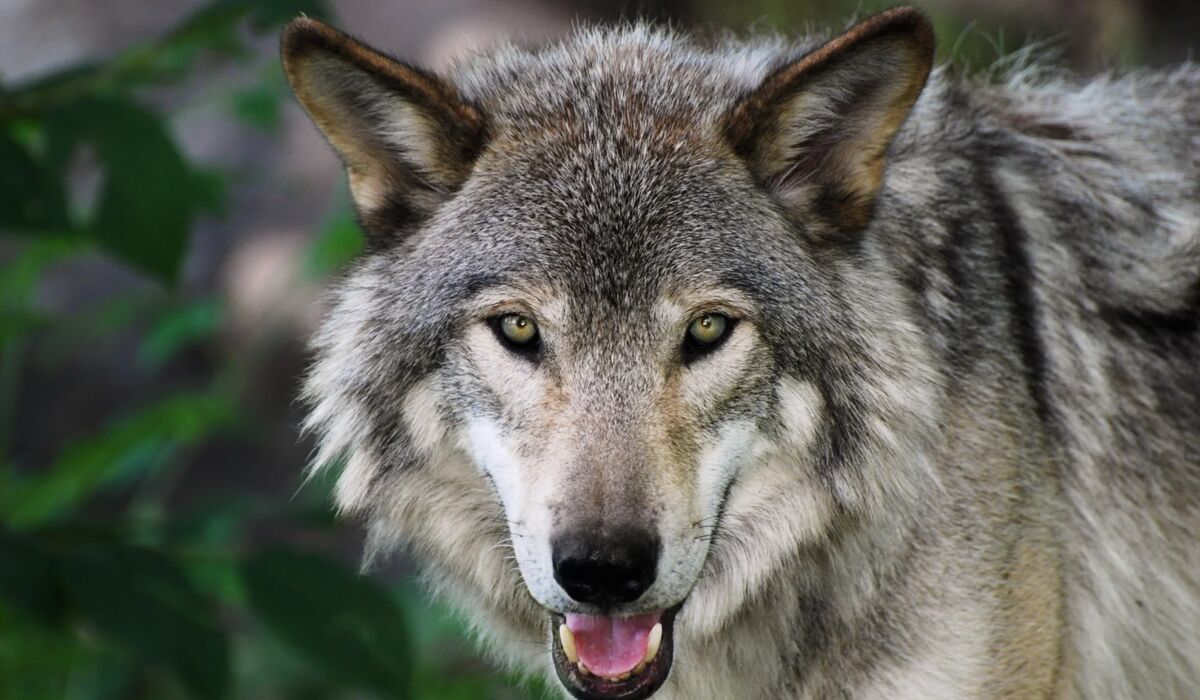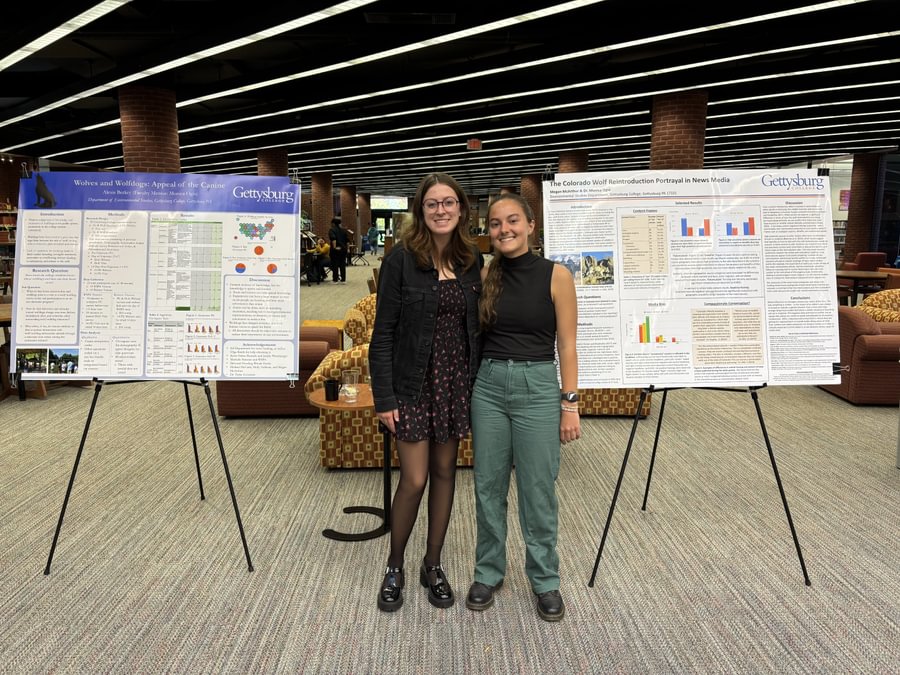
Student-faculty collaboration empowers undergraduates to engage in meaningful, interdisciplinary research that fosters critical thinking, empathy, and real-world impact.
As part of her academic research, PAN Works Research Fellow and Environmental Studies Prof. Monica Ogra examines the way societal structures reflect the way people think about the relationships of humans, wildlife, and wild lives—in categories of conflict and coexistence. Joined by environmental studies major Megan McArthur ’26, the two co-authored and published an article in Medium called “Who Speaks for Wolf? Voters do, Editors might, and Readers can,” which explores the oftentimes misunderstood relationship between people and wolves and the role of news media in this context.
With an interest in wildlife ecology and conservation and supported by funding through a Kolbe Research Fellowship, McArthur joined Ogra in conducting interdisciplinary research over the course of 10 weeks last summer. In speaking about the consequences of wolves being the proxy target in “culture wars,” Ogra and McArthur looked at how the reintroduction of wolves in Colorado was being reported by mainstream news organizations at local, regional, national, and international scales. Then, they used targeted keyword searches to identify all the relevant information in English-language articles.
"Any student who's going to be working with me is going to be working on some aspect of coexistence, whether that's coexistence with nonhuman animals or coexistence with people who are different from you,” said Ogra.
Ogra, who has a degree in public commuications from the Newhouse School at Syracuse University, developed the idea for publishing on Medium while attending a workshop on public scholarship hosted by the Central Pennsylvania Consortium’s Women, Gender, and Sexuality Studies Conference. She realized that reporting on the reintroduction in an online platform would be the perfect avenue to disseminate the ideas and findings that resulted from her work with McArthur.

Through their research Ogra and McArthur analyzed 118 different news articles published six months before and after the Colorado wolf reintroduction. They found that mainstream media headlines demonstrated negative bias against wolves, even when the body of the articles included important context. The articles also demonstrated a partisan media bias and generally lacked discussion about the need for compassionate conservation and the inherent value of individual wolves—what Ogra and her PANWorks colleagues refer to as “wild” lives.
The article published last December asks the question of how media outlets report on wolf reintroduction and relationships between people and wolves. Ogra and McArthur outlined how the Colorado wolf reintroduction has been reported in terms of both bias and context, putting a spotlight on the value of wolves as individuals and calling for readers to coexist with all communities, ecological and social, human and nonhuman.
Ogra is currently writing an update with new data in collaboration with two student researchers—Elif Ozturan ’25 and Sarah Zwickel ’27. This fall, Ogra will travel with research team members McArthur and Zwickel to present the new results at a wildlife management academic conference in Colorado.
"I'm hopeful that by working on this project, students are not only exercising their critical thinking and analytical skills, but also their compassion skills, because these are really emotional issues as well,” said Ogra. “With all of my projects, you're learning about how to make this world a better place, a more just and equitable kind of place, not only for the wildlife and the wild lives that our work is focused on, but also for the people who have to live in close relation to and with these relocated individuals.”
This past semester, McArthur studied abroad in Tanzania, where she conducted research on wildlife conservation and political ecology. As a Kolbe Fellow with Ogra, she focused significantly on literature review and data analysis. McArthur hopes to use her proficiencies in these combined skills as part of a future career in conservation.
"The value of the professors has been really big,” McArthur said. “Being able to form bonds with faculty and not just have lectures of information all the time, but to really talk with them and have them learn more about you, and then doing field and lab work has really helped in building skills for my future career.”
Discover your academic passions and join our first-class faculty in research today.
Related Links:
External Links:
By Katie Lauriello ’25
Photos by Getty Images, Monica Ogra
Posted: 06/23/25